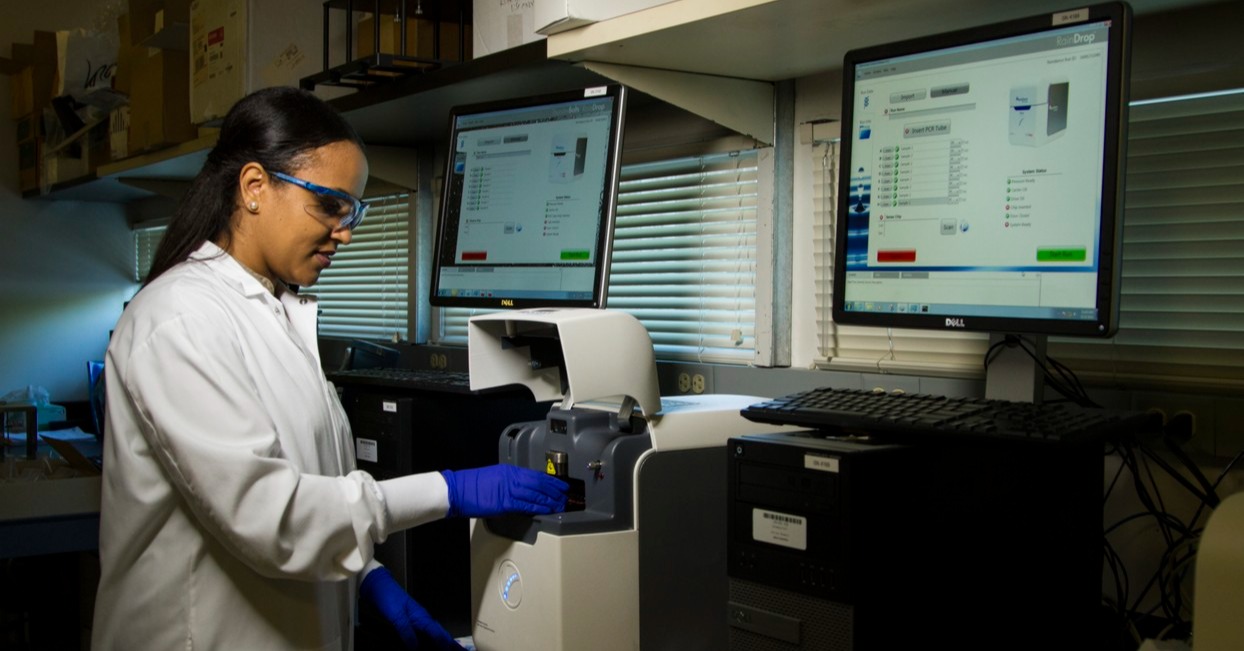
What Is the Epidemiological Triangle?
The epidemiological triangle consists of the agent, the host, and [...]

How do social workers ensure that they’re choosing the best intervention for clients on matters ranging from mental health issues to substance abuse to access to healthcare? Good decision-making demands identifying which treatments are most appropriate in various situations. To achieve this level of care consistently, social workers utilize a process called evidence-based practice (EPB).
Evidence-based practice originated in the medical field in the 1990s as a process to “bring research findings to medical practice decisions.” It was developed to help physicians select the most effective treatment for their patients, but experts in other fields recognized EBP’s value and adopted it for use in education, child welfare, criminal justice, and social work practice.
Social workers, as the Social Work Policy Institute explains, employ EBP to incorporate “well-researched interventions with clinical experience, ethics, client preferences, and culture” to help them select the optimal treatment and services they provide their clients.
So, what is evidence-based practice in social work? This article answers that question while also examining:
Evidence-based practice in social work is a methodology for applying a systematic and scientific approach to care—in partnership with the client and under the guidance of accepted social work practice. By formulating a course of action, defining client preferences, and applying social work research evidence and evaluation, a social worker can make informed decisions about prevention programs, mental health services, and many other forms of care.
As the author of Evidence-Based Practice for the Helping Professionals Leonard Gibbs elaborates, EBP “involves continually posing specific questions of direct practical importance to clients” to objectively find the current best evidence related to each of the client’s responses—and taking appropriate action based on the latest research. To employ EPB, social workers must be lifelong learners, staying up-to-date with current findings through a close reading of social work academic journals and other reliable resources.
| University and Program Name | Learn More |
|
Virginia Commonwealth University:
Online Master of Social Work
|
Evidence-based practice consists of the following five components.
This step involves assessing and identifying the problem on a micro, mezzo, or macro-level. Whether dealing with individual or societal issues, this framing is important for driving to the heart of the matter. Social workers must dig deep to make sure they define the issue clearly and thoroughly and not make the mistake of attempting to treat a symptom (alcoholism or other substance use, for example) when the real issue might be an underlying stressor.
This part of the process takes time. Researching any issue often requires sorting through complicated and dense material and summaries on subjects that may answer your question incompletely. Clinicians must stay alert to cultural context as they process evidence-based research, sticking with real-world conditions and avoiding societal assumptions.
For this part of the EBP process, those in the helping professions may want to seek additional support. By utilizing the resources of the Cochraneand Campbell Collaboration—two prominent globally networked groups of social science researchers—practitioners can investigate evidence-based practices and access systematic reviews of formulated questions. This high-quality examination and evaluation can provide clear guidance leading to informed decision-making, using the best evidence to arrive at a treatment plan or course of action.
Now that the question has been asked and answered with scientific standards applied, the practitioner can apply knowledge of research design and methodology to select appropriate interventions for their client. Their findings should be shared with the larger social work research community to promote continued learning.
When all the formulation and research leads to a human services intervention, the final step involves an evaluation of the efficacy of that intervention. Was the program effective? Are new resources needed to address the specifics of this particular question or societal problem? Practitioners need to pay close attention to each step and the cyclical nature of the process in order to utilize the practice effectively. This requires a great deal of careful research and follow-through.
Virginia Commonwealth University’s School of Social Work offers the following example of EBP in action. bBefore deciding on methods of intervention, evidence-based practice requires a social worker in clinical practice supporting a client with eating disorders to clarify the situation by considering these vital questions:
With the answers in hand, the social worker then researches the most appropriate courses of action—in social work academic journals, for example—chooses the best intervention program or treatment, and discusses with the client how to implement it.
The University at Buffalo’s School of Social Work offers a list of possible interventions/treatments for a host of diagnoses to providers. For example, they suggest that Dialectical Behavior Therapy (a form of cognitive behavioral therapy (CBT)) be used to treat eating disorders. If depression is present, psychotherapy is prescribed.
Social work embraces EBP for a numerous reasons. Evidence-based practice encourages research-driven treatment and discourages non-scientific, less-effective, and even harmful interventions. It also conforms with and is supported by the National Association of Social Workers (NASW) Code of Ethics, which sets the standard for social workers’ ethical conduct and provides a framework for principled decision-making.
This complicated process of applying evidence-based practice in social services is precisely the kind of specialized training you can expect to receive studying for your Master of Social Work (MSW). You won’t need a master’s degree for some entry-level careers in the field of social work, but for the high-level positions and anyone planning to practice as a clinical social worker, the degree is required.
An MSW is a graduate-level social work degree required of anyone looking to qualify for licensure to practice clinical social work in their state. All master’s in social work programs must be accredited by the Council on Social Work Education’s (CSWE)Commission on Accreditation, the sole accrediting agency for social work in the US.
A traditional full-time, on-campus degree program typically takes two years to complete. Many schools have expanded their traditional MSW programs to offer online and hybrid options for study, typically on a part-time basis but sometimes full-time as well. These programs provide the same resources, coursework, fieldwork, and alumni network as the traditional track but provide greater flexibility for the student.
Advanced standing for applicants who already have earned their Bachelor of Social Work (BSW) degree (and can apply undergraduate credits toward their master’s) and accelerated program options are also available at some schools.
Check each school’s admissions office and website for program-specific admissions requirements. Most applications require undergraduate transcripts with a GPA of 3.0 or higher, a resume listing relevant work experience, letters of recommendation, and a statement of purpose demonstrating your understanding and commitment to social work values and ethical code. GRE test scores are sometimes required, but typically only if your undergraduate GPA is below 3.0.
Coursework varies by school, but in all MSW programs you can expect to study evidence-based practice; the history and evolution of social work; individual and group work and the micro, mezzo, and macro levels of care; child welfare; social work theories and practice models; racism and gender discrimination in the social welfare system; and addiction and trauma. Further study depends on your area of specialization. All students participate in fieldwork, an integral part of any MSW program.
Specialization also is program-specific, so make sure to do your research. Some schools offer special certifications. Tulane University, for instance, offers them in disaster and collective trauma, and mental health, addiction, and the family, as well as dual degree options in law, public health, or at their Disaster Resilience Leadership Academy. NYU’s Silver School of Social Work provides concentrations in clinical and mental health, gerontology, and child welfare.
Looking at a list of top schools for a master’s in social work is a good place to start, but your research should go further. Focus on finding the program that best meets your career goals and ability to finance your education.
Some top social work schools to consider include:
(Last Updated on February 26, 2024)
Questions or feedback? Email editor@noodle.com

The epidemiological triangle consists of the agent, the host, and [...]

In the occupational therapy field, a doctorate can open doors [...]

Social work explores complex systems with evidence-based practice to consider [...]

Many Doctor of Social Work (DSW) programs offer full-time, part-time, [...]

Social work plays a critical role in trauma and disaster [...]
Categorized as: Social Work, Social Work & Counseling & Psychology